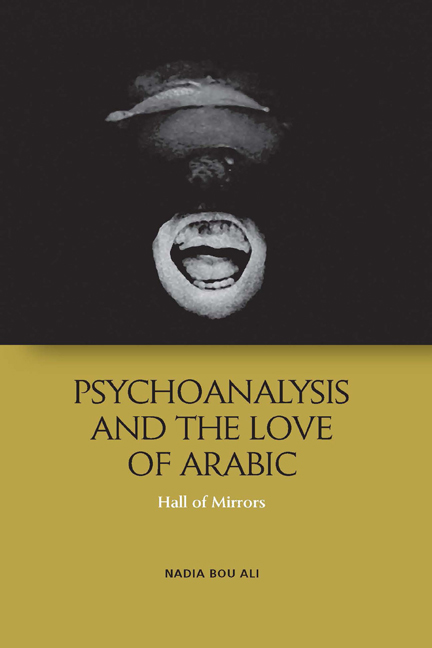Book contents
- Frontmatter
- Contents
- Acknowledgements
- Dedication
- Introduction: The Mirror of Language
- 1 Literature as a Ruthless Excavator of Culture: From the Literary Mode of Being to Lituratterre
- 2 Why is There Lalangue Rather than Nothing? Love of Lugha and Lalangue
- 3 Piercing the Bull’s Eye: The Sexual (Non-)Relation
- 4 A Liberal Psycho-theology
- Conclusion: The Abstractions of Homo Economicus: Now a Stomach, Now an Anus 161
- Notes
- Index
Introduction: The Mirror of Language
Published online by Cambridge University Press: 17 September 2020
- Frontmatter
- Contents
- Acknowledgements
- Dedication
- Introduction: The Mirror of Language
- 1 Literature as a Ruthless Excavator of Culture: From the Literary Mode of Being to Lituratterre
- 2 Why is There Lalangue Rather than Nothing? Love of Lugha and Lalangue
- 3 Piercing the Bull’s Eye: The Sexual (Non-)Relation
- 4 A Liberal Psycho-theology
- Conclusion: The Abstractions of Homo Economicus: Now a Stomach, Now an Anus 161
- Notes
- Index
Summary
In Why Are the Arabs Not Free? Mustapha Safouan claims that the existing schism between spoken and written Arabic instils a mode of domination that commands a ‘voluntary servitude’ to a master signifier: a signifier literally incarnated in the figure of the leader. Safouan argues that this state of servitude arises from within Arabic-speaking societies in modernity, and that domination gets generated ‘internally’ rather than through the external forces of colonisation alone. In Safouan's account, the separation of written from spoken Arabic disrupts the creation of ‘culture’ or the symbolic sphere of society, which is always fundamentally mediated by language. The co-optation of speech by the apparatuses of the State relies upon robbing people of the possibilities through which acts of freedom become possible. Safouan thus maintains, contra Edward Said, that speaking truth to power is not adequate as a strategy for liberation, but rather functions like a fantasy, precisely because ‘power entails deafness to such speech’. The condition of unfreedom in the Arabic-speaking world is premised on three factors: the isolation of people from the realm of thought through the confinement of writing to a classical language; the religious nature of the State's authority which, like God, commands the sole right of interpretation; and the subjection to an imaginary father or patriarch – in the figure of the monarch or the supreme leader – which places authority outside intersubjective relations, thereby rendering it unquestionable to its subjects.
Absolute authority is analogous to the name-of-the-father who is removed from circulation, from the profane world of exchange, frozen as an imaginary image with which subjects identify.
In 1992, Safouan translated Étienne de La Boétie's Discourse on Voluntary Servitude (c. 1549/1576) into Arabic in an attempt to engage with the unquestioning faith in the figure of the unifying leader of masses in the Arab world (Gamel Abdel Nasser in particular). In a psychoanalytic vein, Safouan posits that there is a fundamental link between language and law. Despotism does not work simply through coercive force, but by instituting a transcendental master signifier, a One, who commands a ‘voluntary’ form of servitude. According to La Boétie, the love of liberty is unnatural to the human animal.
- Type
- Chapter
- Information
- Psychoanalysis and the Love of ArabicHall of Mirrors, pp. 1 - 18Publisher: Edinburgh University PressPrint publication year: 2020

